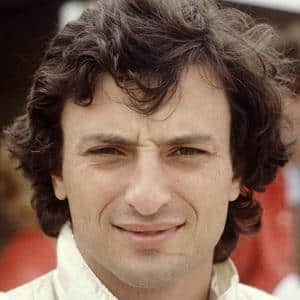Riccardo Patrese: The Motor Sport Interview
A veteran of 256 grand prix starts and three Le Mans 24 Hours, the likeable Italian is now a true racing dad, supporting his son in the early stages of a GT racing career
DPPI
Riccardo Patrese, World Kart Champion in 1974, graduated rapidly through the lower formulae, propelled by passionate ambition and bags of natural talent. He took his place on the grand prix grid, with Shadow in Monaco, just three years later and spent 17 years in Formula 1, winning six races. Riccardo was runner-up to Williams team-mate Nigel Mansell in the 1992 World Championship and for 19 years he held the record for the most grand prix starts, a total of 256 with six different teams. He also shone in the World Sportscar Championship for the Lancia factory team, standing on the top step of the podium eight times and finishing runner-up in the 1982 championship. One of the sport’s most experienced F1 drivers, he is also a keen horseman and, as he tells us from his home in Padua, his son Lorenzo continues to keep the Patrese name on the grid.
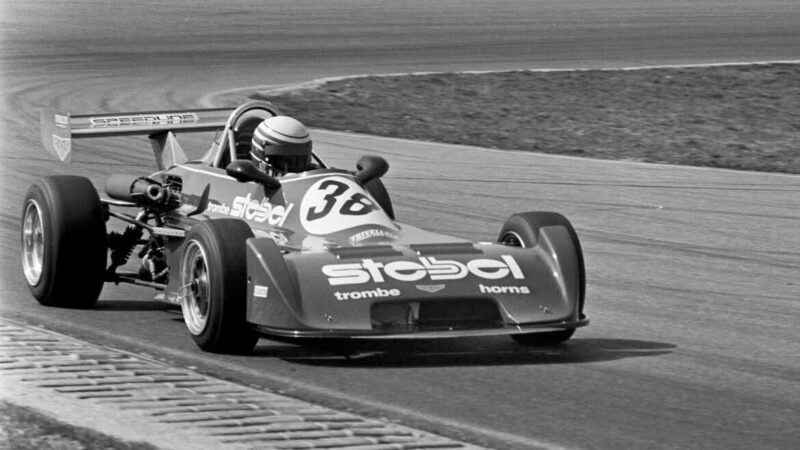
Patrese starred in junior formulae, and was European and Italian F3 champion in 1976
Alamy
Motor Sport: Let’s begin in the present. Are you still competing on horseback and how much are you involved in Lorenzo’s racing?
RP: “I still love my horses, they are a great pleasure, and I’m riding but not competitively any more. Lorenzo decided he wanted to be a racing driver, I didn’t want this, but he showed me he has the focus and the passion. He’s doing the Fanatec GT World Challenge series in an Audi GT3 and he achieved some kind of record by doing the Spa 24 Hours when he was just 16 years and 11 months old… the youngest ever. Racing is a very different story now compared to my time. All the boys dream of F1, but it involves a lot of money, it’s complicated, and maybe in the end it’s just too difficult, too much to go to F1. Lorenzo has convinced me that he can be good in Formula 4, with some good results, but now we keep going in the GT direction because he has drawn some good attention and there is a good chance to become a professional driver. One day, I tell him, maybe you can be a factory driver because now we have Ferrari, Lamborghini, Audi, BMW and others all involved away from the single-seater categories.
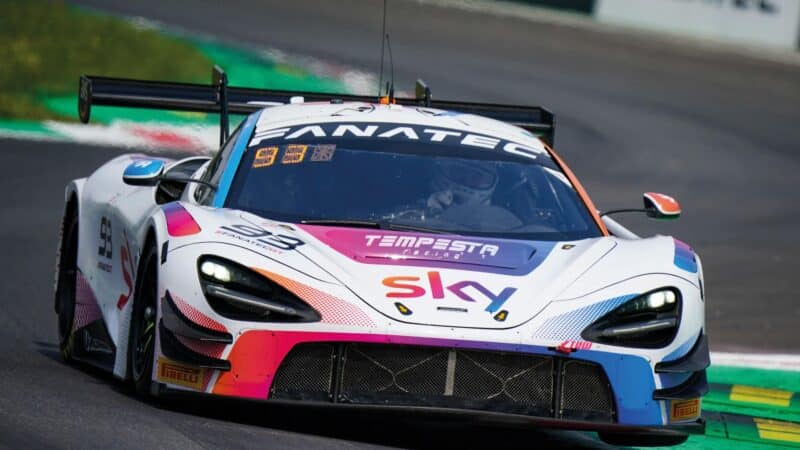
Having started in an Audi, Lorenzo Patrese is now part of the Sky Tempesta McLaren team in GTWC
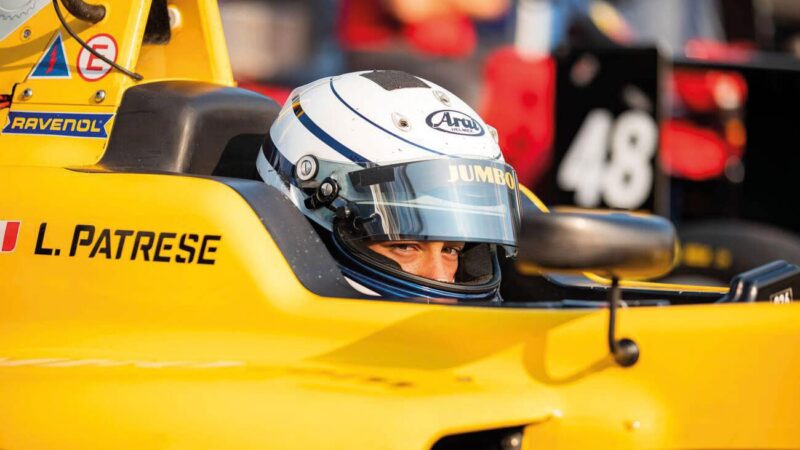
Lorenzo Patrese ready for F4 action
Alamy
You were a factory driver for Lancia in sports cars during your F1 career. How good was the Lancia up against Porsche?
“In F1, if you want to be champion, you need to be selfish“
RP: We were very quick, always fighting with Porsche, especially in the 1000km races over six hours. The Lancia was not built to do 24 hours, like Le Mans, and we never finished those races. I had some good battles with Jacky Ickx, Derek Bell and Stefan Bellof, it was tough competition. I enjoyed the six-hour races, I won a few of those, they were like flat-out sprints, and now this is true of Le Mans where they are pushing all the time. In my time you had to pace yourself to the end, look after the car, and I must say I never liked driving at night so the longer races were not so good for me. I liked very much working with a team, with my team-mates, working together to improve the car. In F1 you are alone, and you worry about the speed of your team-mate, there’s always that comparison, you want to be faster than him. If he is quicker, well… at least you know the car can be quicker!
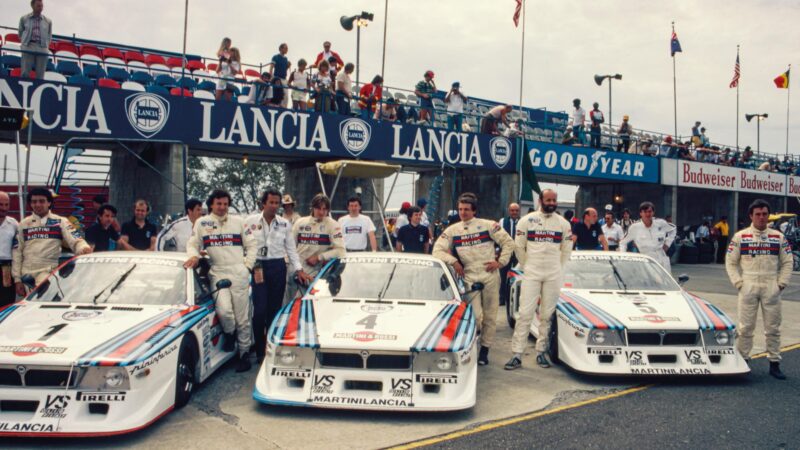
On duty with Lancia at the 1981 Watkins Glen Six Hours. From left: Michele Alboreto, Patrese, Beppe Gabbiani, Piercarlo Ghinzani, Henri Pescarolo and Andrea de Cesaris
DPPI
Talking of team-mates, tell me about working with Nigel Mansell at Williams. Did you find him difficult?
RP: Throughout my career I was working well with all my team-mates, I tried to be respectful, loyal to them and the team, to be faster than them if I could. I had no problem with Nigel, sometimes he wanted many things just for himself, but in F1 – if you want to be champion, to be on top of everything, you need to be a little bit selfish, to look after yourself to get the best. Sometimes I was too open with my team-mates because I always thought the most important thing was the success of the team. I was employed by them and I needed to do my best for them.
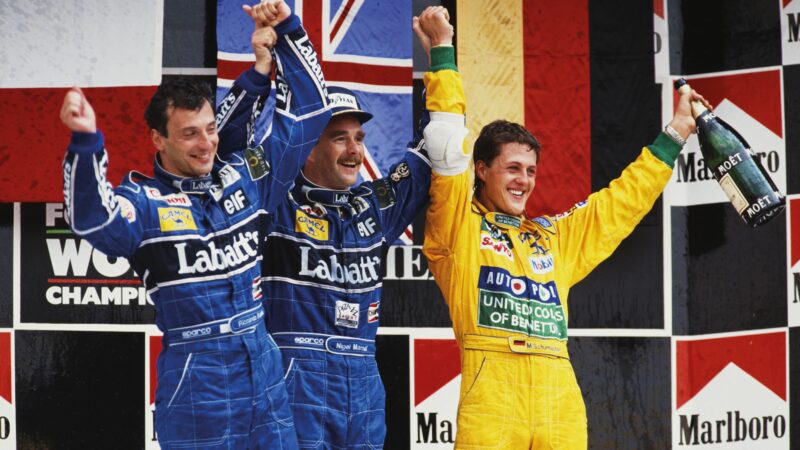
Alongside Mansell in 1992. The pair never had a problem as team-mates.
Getty Images
Nigel was a world champion, yes, but sometimes his morale was low, he was uncomfortable in the car, he would question himself. In ’92 all England was behind him, the wind was blowing for him, he was getting stronger and stronger, and when we came to Silverstone his qualifying time for pole was really something, and of course he won the race.
And Nelson Piquet? A very different character as a team-mate when you were at Brabham I imagine?
RP: He was a good friend, we worked together in a good atmosphere, along with Gordon Murray, Bernie Ecclestone, Herbie Blash, Charlie Whiting, a great group of people working in harmony. In this atmosphere the results will come, the team will progress. Nelson was always talking, always joking, and he was a strong driver, a world champion, so he was team leader. Right from testing at Paul Ricard at the end of ’81 we got on well together, I found a good feeling there. The car was fantastic, and the power from the BMW, in cold weather on cold tyres you had to be careful, you had wheelspin in sixth gear. At the beginning the turbo lag was very bad, when the power came in you could be in trouble. Remember, for qualifying in ’83 we had something like 1200bhp, so yes you pay attention. Gordon was a genius, he is still a genius with his new supercars, he always tried to be ahead of everybody else with his ideas and designs, especially with aerodynamic downforce. You could play with the rules, be on the edge, and his brilliance combined with BMW and Michelin won us the world championship. Everyone was trying to find that advantage, not just Brabham but also Colin Chapman, and when you find it you have to use it.
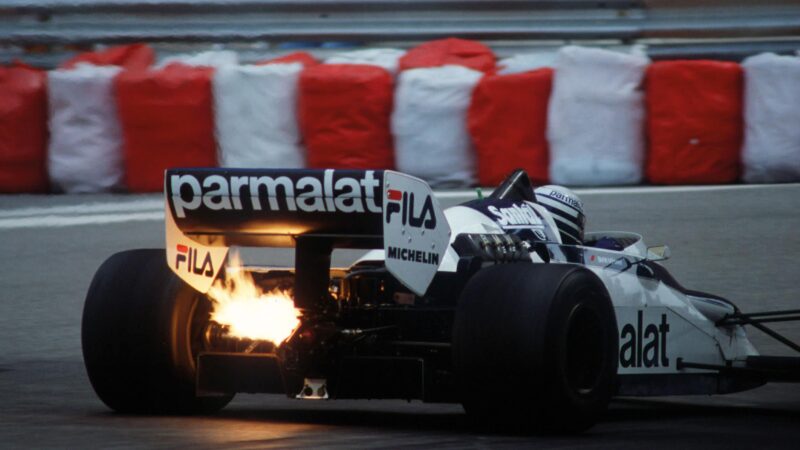
Patrese en fuego at Brabham in 1982 on his way to victory in the Monaco GP. Gordon Murray was, and remains, “a genius”
You had an offer from Ferrari, a dream for any Italian driver. Why did you never race for the Scuderia?
RP: That was in 1978, Gilles (Villeneuve) was not having a good season, there was a lot of criticism of him, he was having accidents, so Mr Ferrari called me, asked me to sign a letter of intent. I signed this letter, giving him priority on me for 1979, and it could have worked, but Gilles won his home grand prix in Montreal, the last race of the season in October and Ferrari decided to keep him. I always kept a good relationship with Mr Ferrari until 1981 when he took Didier Pironi and he told me not to wait any more. Bernie had already been asking me to drive for Brabham but I’d told him I was waiting, and hoping, for Ferrari as this was like a dream for me to drive for them. Anyway, when the door closed at Maranello in ’81 I called Bernie who said he still wanted me so I left Arrows and joined Brabham for the ’82 season.
“Ferrari is like the national football team. Everybody is still a fan“
Is Ferrari still a religion in Italy, still the pride of the nation and a team that every fan still supports?
RP: Ferrari is important for Italy and important for F1 because it’s a name that is liked and respected all around the world and their road cars are fantastic. In Italy Ferrari is like the national football team, and for sure everybody is still a fan, yes. It’s not like the old days of Mr Ferrari because his charisma was something special and then there was the incredible success with Schumacher. In recent years they are always hoping to win, but then they fall behind, so maybe they have lost a little bit of their appeal. My impression is the team feels less Italian if you like, there was more passion before because there are not so many Italians and, like other teams, it has become more multi-national.
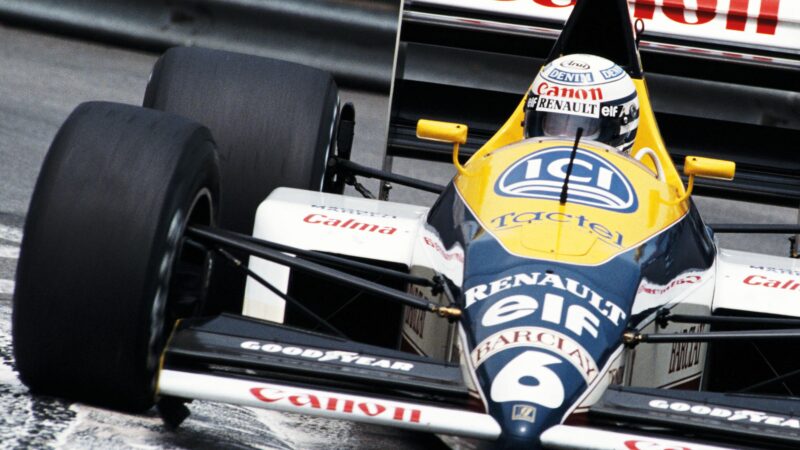
In the Williams FW12C in 1989, a season that would bring him third in the world championship
Getty Images
When you joined Williams in ’88 the team was at a low point having lost Honda engines but then came the V10 Renault in ’89 and you were in the right place at the right time.
RP: Yes, it was a bit of a shock when Honda finished with Williams but I knew it was still a very good team and as soon as I did the first kilometres with the Renault V10 in testing at Paul Richard I knew this was a winning engine. Working with Patrick Head was fantastic, he’s an outstanding engineer, very special, and we made a good working relationship. The car improved as soon as we had the V10, I was on the front row alongside Senna for the first race in Brazil and took fastest lap of the race before we had to retire the car. By ’91 the car was even better but we were the first to have the semi-automatic gearbox and this gave us problems in the first four races. Then came the FW14B for ’92 and we were flying, faster than everyone else. I think this car was more suited to Nigel’s style of driving because it was very physical – no power steering,no power brakes and a huge amount of downforce so you needed a lot of physical strength. This was not my style of driving but you don’t complain when your car is two seconds quicker than the others and you are first and second in the world championship.
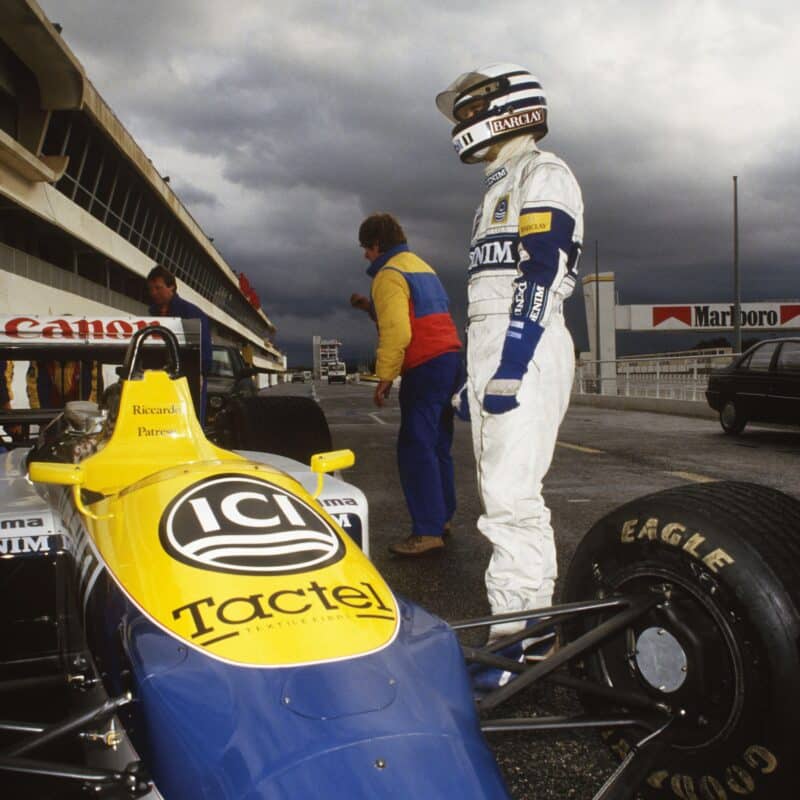
Storm clouds gather ahead of a test at Paul Ricard in 1987. After a disappointing year in a Motor Racing Developments Brabham, Patrese would land a Williams drive for the final race, and beyond
Having decided to retire after 17 years in F1 you came close to a comeback with Williams. Why did that not happen for you?
RP: I did not want to stop at the end of ’93 but there was a very poor atmosphere at Benetton. I was not happy with Briatore, with what was happening there. There was no solution for ’94 but when the season started I had some regrets and thought about what maybe I could do. Williams were struggling a little bit with the FW16 so I went to Imola and spoke to Frank and Patrick, offered my services to do some testing for them. I was the last person to drive the Williams with passive suspension, Damon Hill only had experience with the active car because when he was the test driver it was always with the active car. I wanted to keep driving, to be involved, so when I spoke to Frank at Imola he was quite keen on this idea, and Ayrton was also very positive. I went home on the Saturday, knowing this was now a possibility for me to do some testing. We all know what happened on the Sunday and, after this tragedy, Frank said that now he needed a race driver and he asked me if I was ready to come back. I said yes, I was ready, but I had all these bad feelings about the death of Ayrton, they were so bad, I couldn’t sleep properly. After 17 years I had had many accidents, and thank God I had survived, but now this with Ayrton who was in a safe car, and I knew how much attention Williams always gave to safety. As well, you know, Ayrton was the most expert driver, and I thought this could happen to me, so now I had all these doubts and I told Frank it was over, that I don’t want to drive F1 any more, that I have too many doubts to perform as well as I have in the past. So that was it, I was out of the circus, and decided it was time to retire.
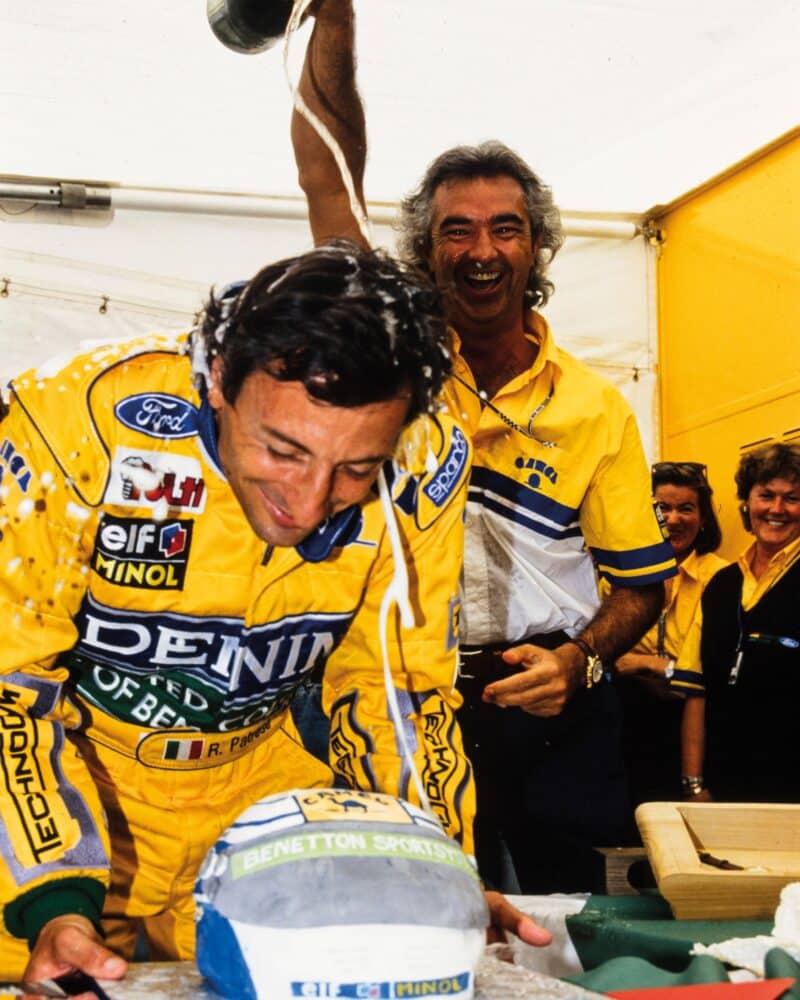
A brief moment of joy with Benetton in 1993 as Flavio Briatore gives Patrese a champagne soaking. After just one year with the team Patrese would leave.
LAT Images
After the accident at Monza in 1978 [when Patrese’s Arrows clipped James Hunt’s McLaren at the start, triggering a mass pile-up], in only your second year in F1, you were vilified not only by the media but by your fellow drivers [he received a ban for the following US GP]. How did you recover from that?
RP: F1 is a hard place, and so is life, it can be tough. All my colleagues were against me, I was only 24 at the time, and I had to go to court, to face a judge and stand there listening to the sentence, innocent or guilty. It was a tough experience but I think it made me a stronger person.
It could have been the end for me, for my morale, but I was strong and I came out of it even stronger.
“F1 is a hard place, and so is life. I had to go to court and face a judge“
You raced the early ground-effects cars and now we see huge amounts of downforce generated by the current cars. What do you think of F1 as it is today?
RP: Yes we had ground effects in the late ’70s, with some downforce, but of course aerodynamics have improved massively since then. The cars are now like fighter jets reversed, let’s say, and the forces are unbelievable. My Williams in ’92 was already a fantastic car, with powerful aerodynamics, but when I drove Rubens Barrichello’s Honda at Jerez in 2008 – he was beating my record of the most grand prix starts that year – I realised this was something else, the grip was fantastic, so much more than when I stopped 15 years earlier. Now, it’s even better, and maybe we arrive at a point when a human being will have a problem to drive cars like this. They are so quick these days, so many G-forces on the driver, but they have the power steering and this makes it easier physically. They have less power than we had so it’s all in the aerodynamics.
What advice, after a long career, would you give to the youngsters who dream of a place on the grand prix grid?
RP: First of all you need the passion, the passion to succeed, and the talent of course, because this brings results. You need to learn how to work with your surroundings, with the team, with the people who develop the car, and to be respectful. The driver is important, yes, but so too are all of these people around you.
Through my own career I tried always to be grateful to those who helped me succeed and I hope I came away with some respect from them.
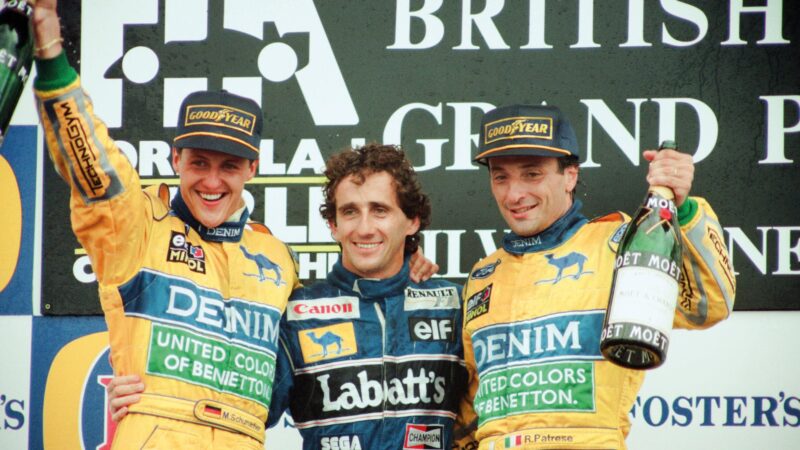
Partnering Schumacher in 1993. Patrese would score two podium finishes: Britain and Hungary
Getty Images
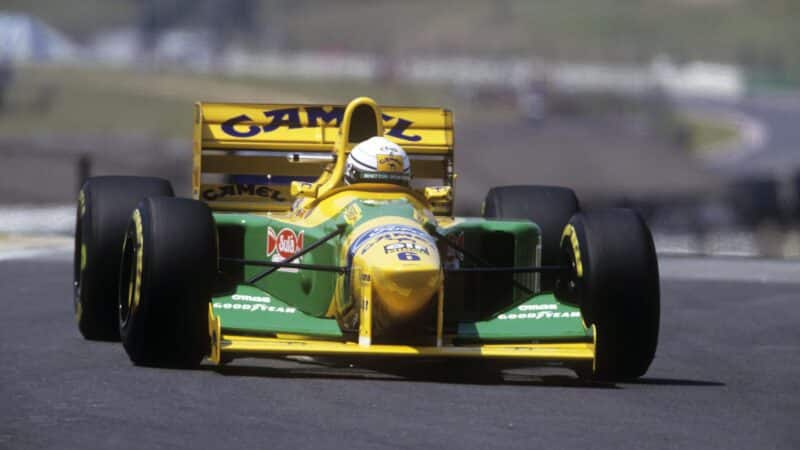
Patrese’s first GP for Benetton, at Kyalami
McKlein
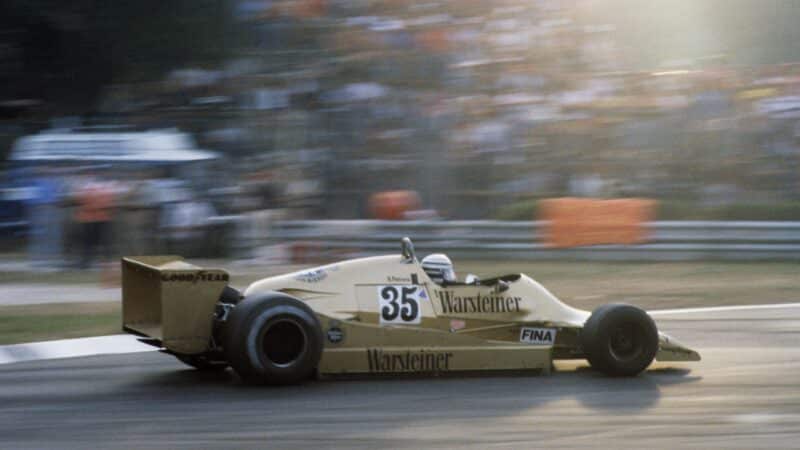
Patrese in the Monza sunshine in 1978 during his first season with Arrows
Lat Images
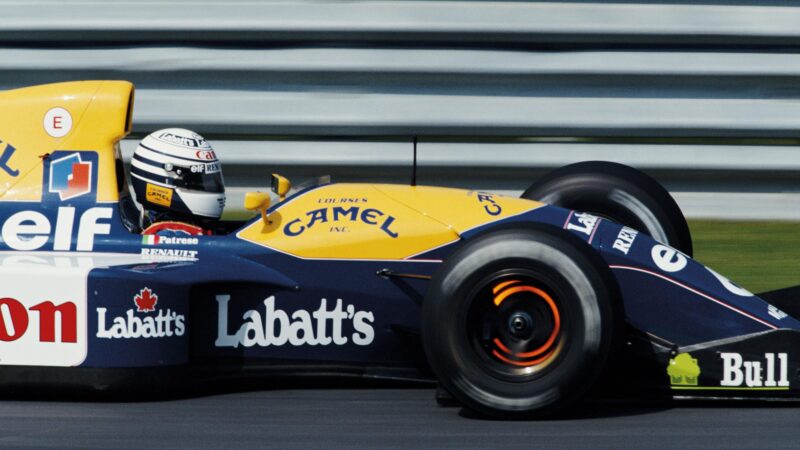
The Williams FW14B of 1992 was a monster, and very physical to drive. Maybe it better suited Mansell?
Getty Images
